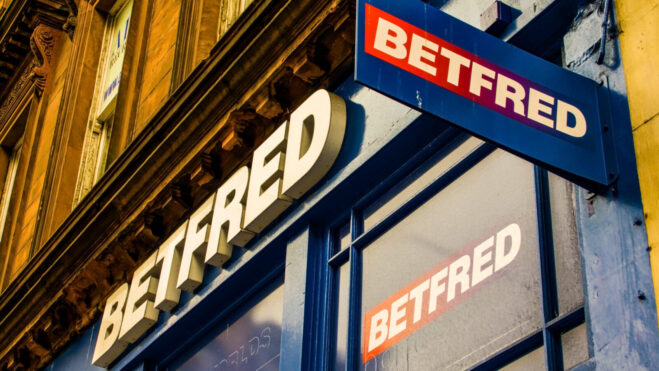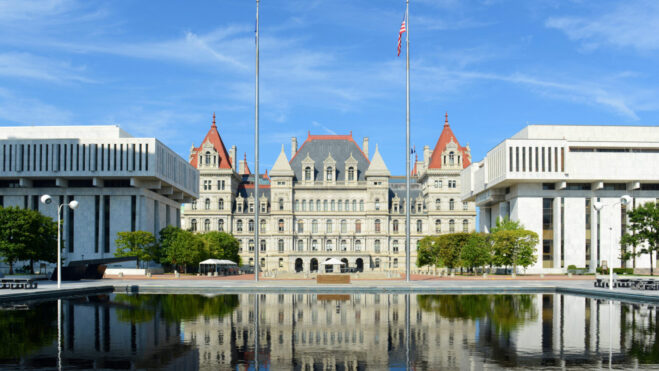New Online Poker Bill Introduced In New York
New York state Sen. Joseph Addabbo has introduced a bill to legalize online poker in the state, although it faces several challenges.
2 min

One of New York’s biggest online gambling supporters now has poker on his mind.
Sen. Joseph Addabbo, a long-standing advocate for the expansion of gaming in New York, has introduced Senate Bill 9226 (SB9226), which aims to legalize online poker within the state.
This bill is a strategic move to establish a regulated online poker market, and it outlines the framework for licensing, regulation, and taxation of online poker platforms. SB9226 proposes up to 10 licenses, with a fee of $10 million each that could potentially generate substantial revenue for the state.
The fee is structured to be offset against taxes paid over the first 60 months of operation. SB9226 also mandates that the New York State Gaming Commission (NYSGC) enforce standards to protect the public against issues such as underage gaming and compulsive gambling.
Sen. Addabbo, along with Assemblyman J. Gary Pretlow, has previously attempted to garner support for a broader range of iGaming services, including online casino and lotteries. However, these efforts did not find the necessary backing to pass the legislation. Despite these setbacks, the duo has remained steadfast in their commitment to expanding New York’s iGaming ecosystem, viewing it as a potential source of revenue and entertainment for the state.
SB9226 is not the first legislative effort by Sen. Addabbo in this domain; it serves as companion legislation to Assemblyman Pretlow’s AB1380, which also calls for the legalization of online poker. Unfortunately, AB1380 has seen little progress since its introduction in January.
Poker raises, then folds
The saga of online poker in the U.S. has been a long-running rollercoaster of legal developments. The first real money online poker game was dealt on Planet Poker in 1998, marking the beginning of what would become a booming virtual industry.
However, the Unlawful Internet Gambling Enforcement Act (UIGEA) of 2006 signaled a shift, making it illegal for gambling businesses to “knowingly accept, in connection with the participation of another person” unlawful internet wagers. This led to the Black Friday crackdown in 2011, where major poker sites were seized and shut down by the U.S. Department of Justice.
In the aftermath, the landscape of U.S. online poker changed dramatically. However, it wasn’t too long after that some states took the lead in legalizing and regulating online poker within their borders. Nevada, New Jersey, and Delaware were among the pioneers, creating a regulated environment for players.
The Poker Act, take 2
Now, six states are regulating online poker: Delaware, Michigan, Nevada, New Jersey, Pennsylvania, and West Virginia. The latter joined the Multi-State Internet Gaming Agreement (MSIGA) last November, and operators could join sometime later this year.
The acceptance of online poker in states like Michigan and Pennsylvania serves as a testament to the growing trend of digital gaming. Michigan joined the MSIGA, allowing players to compete across state lines.
Until now, only PokerStars operated under the MSIGA in Michigan. However, the World Series of Poker is getting ready to include the state in a player-pooling arrangement with Nevada and New Jersey.
Pennsylvania has also shown interest in expanding its online poker offerings, indicating a potential shift toward joining the MSIGA. A new bill, HB 2078, would allow poker players in the state to play against those in other states, significantly growing prize pools and competitions.
If New York, with its population nearly 20 million strong, were to join the poker ecosystem and eventually the interstate pooling, it would be a major step toward online poker returning to its former heights in the U.S.





